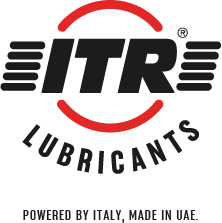ITR SUPREMO XC is a heavy-duty synthetic fluid made with well-refined base stocks and balanced additives. The oil meets the requirements of engines operating in severe conditions.
The high-quality lubricant provides adequate protection, anti-oxidation, and dispersancy characteristics that meet the required specifications. The fluid is designed for moderate-severe service that depends on oil change frequency and sulfur and diesel levels.
Why Choose ITR SUPREMO XC for your Heavy Duty Engine Equipment?
ITR SUPREMO XC is a product of ITR Lubricants, a company reputable for its production of premium, high-performance, and superior-quality lubricants. The heavy engine oil is designed to meet the demands of extreme driving conditions.
Why use ITR SUPREMO XC for your heavy engine machinery and equipment;
- ITR SUPREMO XC meets the lubricant requirements of heavy machinery that operate under severe conditions.
- The lubricant is formulated with balanced additives and refined base stocks to provide high dispersancy, and detergency and meets specified performance standards.
- The fluid is designed to regulate severe service depending on oil change frequency and diesel fuel Sulfur level.
- As a synthetic blend fluid, ITR SUPREMO XC has anti-oxidation, anti-corrosion, and anti-wear properties to protect and extend the life of your machinery’s engine.
Comparison Between ITR SUPREMO XC and ITR SUPREMO XD
ITR Lubricants has several types of engine oils that include ITR SUPREMO XC and ITR SUPREMO XD brands
The performance and characteristics of the two categories are summarized below;
| Description | ITR SUPREMO XC | ITR SUPREMO XD |
| Performance Standards | ||
| API CF/SJUS-MIL-L-2104 C,EDL3 OF BIS:13656(2002),Caterpillar Series3, Mack T-8A. | -API CF-4/SJ -ACEA A2B2-96, -MB- 228.1, -MAN M 271- US MIL-L-2104E & -MIL-L-46152E- E-DL4 OF BIS (13656). | |
| Typical Characteristics: | ||
| CCS Viscosity (ASTM D-5293): | <9500CP@-15°C – – | <7000CP @-20°C |
| Flash Point, °C (ASTM D 92 & 93): | > 210 | >210 |
| Kinematic Viscosity @ 100oC, CST (ASTM D-445): | 14.5-15.0 | 14.5-15.2 |
| Kinematic Viscosity @ 40oC, CST (ASTM D-445): | 105-120 | 105-120 |
| Pour Point, °C (ASTM D 97): | <-25 | <-25 |
| Sulfated Ash, % by wt ( ASTMD-894): | <1.1 | <1.2 |
| TBN, mgKOH/g,MIN (ASTM D-2896): | 8.0-9.0 | 10.0-11.0 |
| Viscosity Index (ASTM D-2270): | >125 | >125 |
ITR SUPREMO XC is an ISO-certified, heavy-duty engine oil developed to meet the requirements of a variety of engines operating under severe conditions.
Get A Free quote for premium quality ITR SUPREMO XC from Top rated ITR Lubricants, the number one choice for oils and lubricants in the UAE, India, Bangladesh, Tanzania, and Mongolia.
What are the different types of Engine Oils?
There are two main categories of engine oils, synthetic and mineral oils.
Synthetic engine oils
The lubricants are made by mixing several synthetic elements. The fluids are suitable for high-performance vehicles. Synthetic oils last a long time; the oil change period is longer for petrol and diesel cars. The lubricants are ideal for severe driving conditions.
Mineral engine oils
Mineral engine oils are formulated from petroleum products. The lubricant is used mainly by older vehicle models. The oil has low protection against oxidation and hence requires frequent changes. Mineral engine lubricant is not of good quality and is cheaper than synthetic and semi-synthetic oils.
Semi-synthetic engine oil
Semi-synthetic engine oil is the best of the three options of lubricants. It has benefits from mineral and synthetic oils, a fair price like mineral oil, and good qualities from synthetic lubricants. Semi-synthetic lubricants’ performance depends on your car’s model and make.
